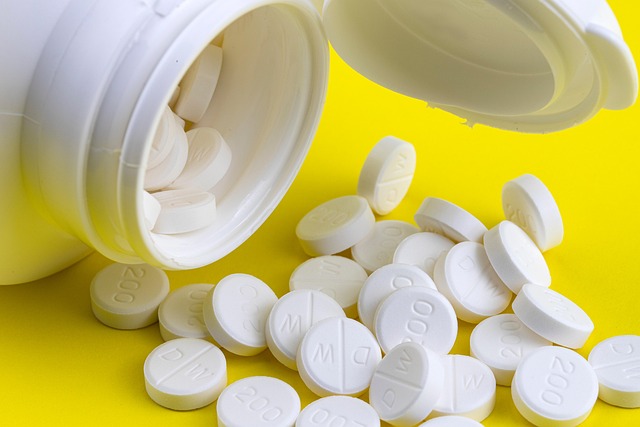Comprehensive Guide to Effective Diabetes Treatment: Drug Therapy and Glycemic Control Techniques
Effective diabetes management is crucial for a healthy life. There are various treatment options for diabetes, including medication and natural therapies. Medications such as insulin and oral medications play a key role in controlling blood sugar levels, while natural therapies like cinnamon and apple cider vinegar contribute to overall blood sugar management. Furthermore, a balanced diet and effective blood sugar control measures can enhance the effectiveness of diabetes treatment. With the right approach, it is possible to live healthily with diabetes.

Diabetes management has evolved significantly over the past decades, offering patients multiple approaches to maintain optimal blood sugar levels and reduce the risk of long-term complications. Understanding the various treatment options, their safety profiles, and proper usage is essential for anyone living with diabetes or caring for someone with the condition.
Effective diabetes control involves a combination of medication, dietary modifications, physical activity, and regular monitoring. The choice of treatment depends on the type of diabetes, individual health status, presence of complications, and response to therapy. Healthcare providers work closely with patients to develop personalized treatment plans that address their unique needs and circumstances.
Does Metformin Harm the Liver and Kidneys?
Metformin remains one of the most widely prescribed medications for type 2 diabetes management. Contrary to common concerns, metformin is generally considered safe for the liver and does not cause liver damage in most patients. In fact, studies suggest it may even have protective effects on liver health, particularly in patients with fatty liver disease.
Regarding kidney function, metformin requires careful consideration. While it does not directly damage the kidneys, it can accumulate in the body when kidney function is significantly impaired, potentially leading to a rare but serious condition called lactic acidosis. Healthcare providers typically monitor kidney function through regular blood tests and adjust metformin dosage or discontinue it when kidney function declines below certain thresholds. Patients with normal or mildly reduced kidney function can usually take metformin safely under medical supervision.
Regular monitoring of liver and kidney function through blood tests helps ensure safe medication use. Patients should report any unusual symptoms such as persistent nausea, vomiting, abdominal pain, or unusual fatigue to their healthcare provider promptly.
Which Vitamins Are Suitable for People with Diabetes?
Vitamin supplementation can play a supportive role in diabetes management, though it should never replace prescribed medications or proper medical care. Several vitamins and minerals have shown potential benefits for people with diabetes.
Vitamin D deficiency is common among people with diabetes and may affect insulin sensitivity. Supplementation may help improve blood sugar control in deficient individuals. B vitamins, particularly B12, are important because long-term metformin use can reduce B12 absorption, potentially leading to deficiency. Vitamin C and E, as antioxidants, may help reduce oxidative stress associated with diabetes, though evidence for their direct impact on blood sugar control remains mixed.
Magnesium plays a role in glucose metabolism, and deficiency is relatively common in people with diabetes. Supplementation may improve insulin sensitivity in some individuals. Alpha-lipoic acid has shown promise in managing diabetic neuropathy and may have antioxidant benefits. Chromium supplementation has been studied for its potential role in glucose metabolism, though results have been inconsistent.
Before starting any vitamin or supplement regimen, patients should consult their healthcare provider, as some supplements can interact with diabetes medications or affect blood sugar levels unpredictably.
Which Medication Is Better for Controlling Blood Sugar Levels?
The choice of diabetes medication depends on multiple factors including diabetes type, disease duration, current blood sugar levels, presence of complications, other health conditions, and individual response to treatment. No single medication is universally superior for all patients.
For type 2 diabetes, metformin is typically the first-line medication due to its effectiveness, safety profile, and affordability. When metformin alone is insufficient, several medication classes can be added. Sulfonylureas stimulate insulin production but carry a risk of low blood sugar and weight gain. DPP-4 inhibitors offer moderate blood sugar reduction with low risk of hypoglycemia. GLP-1 receptor agonists provide significant blood sugar reduction, promote weight loss, and offer cardiovascular benefits.
SGLT2 inhibitors lower blood sugar by increasing glucose excretion through urine and provide heart and kidney protection benefits. Insulin therapy remains essential for type 1 diabetes and may be necessary for type 2 diabetes when other medications are insufficient. Multiple insulin types are available, including rapid-acting, short-acting, intermediate-acting, and long-acting formulations.
Healthcare providers consider A1C targets, risk of hypoglycemia, impact on weight, cardiovascular and kidney effects, cost, and patient preferences when selecting medications. Many patients require combination therapy using multiple medications with complementary mechanisms of action.
What Happens If You Forget to Take Your Diabetes Medication?
Missing diabetes medication doses can lead to elevated blood sugar levels, though the immediate impact varies depending on the medication type, dosage, and individual factors. Understanding what to do when a dose is missed helps minimize potential complications.
For metformin and similar oral medications, if you remember within a few hours of the scheduled time, take the missed dose. If it is close to the next scheduled dose, skip the missed dose and resume the regular schedule. Never double up on doses to compensate for a missed one. For sulfonylureas, missing a dose may cause blood sugar to rise, but taking extra medication increases the risk of dangerously low blood sugar.
For injectable medications like GLP-1 receptor agonists, follow the specific instructions provided with the medication, as timing recommendations vary by product. For insulin, the approach depends on the insulin type. Missing long-acting insulin can lead to significantly elevated blood sugar. Contact your healthcare provider for guidance on how to resume dosing safely. Missing rapid-acting mealtime insulin means that particular meal will not have insulin coverage, likely causing post-meal blood sugar spikes.
Frequent missed doses can lead to poor overall blood sugar control, increasing the risk of both short-term and long-term complications. If you frequently forget medications, consider using pill organizers, smartphone reminders, or linking medication times to daily routines like meals or bedtime.
How Should Patients with Diabetic Nephropathy Choose Medications?
Diabetic nephropathy, or kidney disease caused by diabetes, requires special consideration when selecting diabetes medications. Not all diabetes medications are safe or appropriate for patients with reduced kidney function, and some medications actually provide kidney-protective benefits.
Medication selection for patients with diabetic nephropathy depends on the stage of kidney disease, measured by estimated glomerular filtration rate (eGFR). Metformin can typically be used with normal to moderately reduced kidney function but requires dose adjustment or discontinuation as kidney function declines. SGLT2 inhibitors have demonstrated significant kidney-protective effects and can slow the progression of diabetic kidney disease, though their glucose-lowering effect diminishes with reduced kidney function.
GLP-1 receptor agonists offer kidney protection benefits and are generally safe across various stages of kidney disease, with some requiring dose adjustment. DPP-4 inhibitors are kidney-safe but most require dose adjustment based on kidney function. Sulfonylureas can be used with caution, though some accumulate with reduced kidney function and increase hypoglycemia risk. Insulin remains safe for all stages of kidney disease, though dosing may need adjustment as kidney function changes because the kidneys play a role in insulin clearance.
Blood pressure control is critical for slowing kidney disease progression. ACE inhibitors or ARBs are typically recommended for patients with diabetic nephropathy. Regular monitoring of kidney function, electrolytes, and blood sugar levels is essential. Patients should work closely with both their primary care provider and a nephrologist or endocrinologist to optimize their treatment plan.
This article is for informational purposes only and should not be considered medical advice. Please consult a qualified healthcare professional for personalized guidance and treatment.
Conclusion
Effective diabetes management requires a comprehensive approach tailored to individual needs, health status, and presence of complications. Understanding medication safety profiles, appropriate vitamin supplementation, proper medication adherence, and special considerations for kidney disease empowers patients to work effectively with their healthcare team. Regular monitoring, open communication with healthcare providers, and commitment to treatment plans remain essential for achieving optimal blood sugar control and preventing long-term complications. As diabetes treatment continues to evolve, staying informed about available options helps patients make educated decisions about their care.


